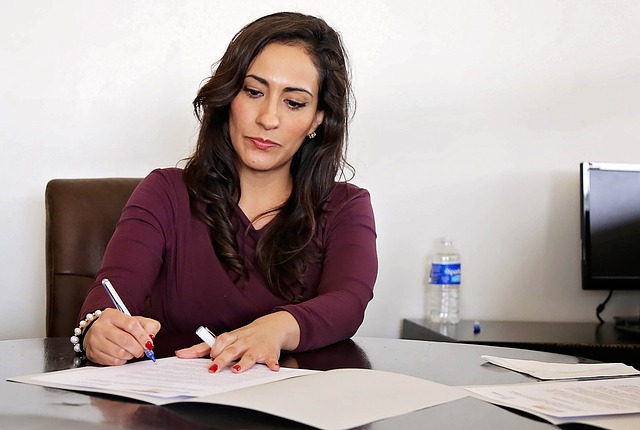A wife in a divorce will often feel like her rights have been taken away. She is no longer treated with the respect and honor her husband once gave her.

Her children are now being cared for by someone else, and their home has been turned upside down. But the reality of divorce is that no one has all the rights, even after a divorce has been finalized.
Then it can be difficult serving papers on a husband that is making it difficult to be found. In these instances, legal services are particularly useful to seek out. To assist you, there are Denver Process Servers that will be able to help you serve the divorce papers. Even if you do know where your husband is it can be upsetting to be the one serving the papers on him. It is a much pleasanter and easier process to distance yourself from this and let a process server, who also knows the legalities of serving such legal papers, act on your behalf and so follow the specific requirments of the law to the letter.
There are many questions a woman might have when her husband is filing for divorce. One of the biggest questions is what my rights are as a wife? This is an important question that everyone should be aware of. The answer to what your rights are as a wife has to do with many things, including alimony, child support, child custody, and visitation.
Child Custody, Alimony, and Visitation
Custody, alimony, and visitation are common issues in divorce, but most people are unaware of the legal rules that govern these issues. In many cases, both parents and their respective attorneys may not be aware of the intricacies of the laws surrounding these decisions. Parents should consult Family Law Phoenix Attorneys (or in your location) to understand the different laws to protect their interests.
Divorce is never an easy time for anyone involved. The emotional turmoil that accompanies its occurrence can wreak havoc on individuals and the relationships they hold dear. One of the most common questions couples face after a divorce is how to divide the marital assets.
There are millions of parents in the world, and, as a result, there are millions of kids and thousands of child custody cases every year. For the most part, when a married couple files for divorce, it is because the marriage has completely broken down. The couple no longer loves each other and no longer values being together as a couple. However, this does not mean that they cannot continue to care for their children. After a legal separation, the parents can still care for their children without giving up custody.
The Property and Financial Obligation
The day a husband and wife decide to separate, everything in their lives changes. As a result of this, the court will take into consideration how much money the spouses have, what debts they have, and how much they own. These things include, but are not limited to, whether the house they live in belongs to only one spouse or both, credit card balances, college tuition, and how much debt the spouses owe. All of these things determine how the court will divide the property.
Now that you’ve decided to get a divorce, you might be wondering how it will affect your life. Starting with the financial and legal aspects of the split, you may be concerned about who will have to pay for the bills, which bank accounts and credit cards you should keep, and how to maintain your mortgage payments even after you move out of your marital home. On the legal side, you and your spouse may be wondering what the correct way to divide your property is, what will happen to your joint savings account, and who will be the one paying the mortgage.
 While every marriage is unique, courts take most of the spouses’ rights when the marriage ends. This can be quite a shock to people, especially when they are still married and make the mistake of not knowing their rights in a divorce. As a wife, you are entitled to certain rights in a divorce. These rights are often outlined in your prenuptial agreement, but if you don’t have one, you can still get some insight into what you can expect from your spouse.
While every marriage is unique, courts take most of the spouses’ rights when the marriage ends. This can be quite a shock to people, especially when they are still married and make the mistake of not knowing their rights in a divorce. As a wife, you are entitled to certain rights in a divorce. These rights are often outlined in your prenuptial agreement, but if you don’t have one, you can still get some insight into what you can expect from your spouse.
There are many types of divorce. One of the lesser-known but still fairly common is the “no-fault” divorce. These are used where couples decide they do not want to fight over money, other assets, or custody and just want to call it quits. These divorces, while legally binding, are more likely to be amicable than other types of divorces. One of the less-talked-about aspects of a “no-fault” divorce is what happens to the marital estate.
You may have heard of the terms “marital” or “custodial” or “visitation” orders. Or perhaps you have heard of “divorce.” But have you ever heard of “domestic partnership”? The term “domestic partnership” is used to describe a legal relationship of cohabitation, developed by the state of California in 1999, and is similar to marriage, with rights and responsibilities for taxation purposes and concerning property and finances.
The Time to Hire a Process Server
The moment to hire a process server will be when you are not in contact with your husband or find it uncomfortable to deal with the divorce. Instead, you can hire a process server to make sure that your soon-to-be ex-husband is found and legally informed of the divorce promptly and within the requirements of the legal processes that need to be followed.
In conclusion, know your rights when it comes to divorce, and then do not hesitate to get a process server involved to take care of the legal documents involved in divorcing your husband.
Related Posts:
- What Divorce Lawyers Can and Can’t Do
- How to Accept Divorce You Didn’t Want and Move On
- First Step in Getting a Divorce: A Beginner’s Guide
- Need legal help? Divorce attorneys are here to help you with this process
- Understanding Marriages and Divorces From a Legal Angle in Canada
- Steps Women Should Take To Prepare For Divorce